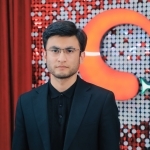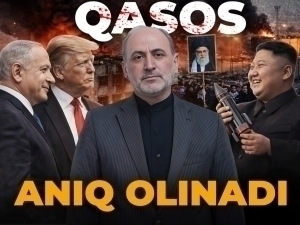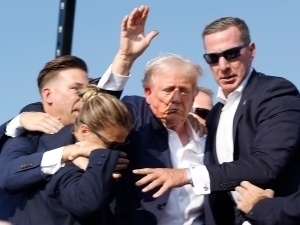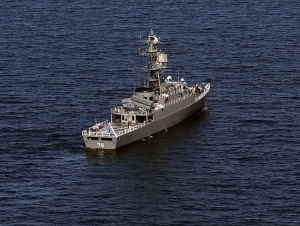Midweek: Бой берилган Истанбул, охири кўринмаётган намойишлар, Ғазодаги “суғур куни”
Таҳлил
−
27 Март 2025 5708 11 дақиқа
Туркияда роппа-роса бир ҳафта олдин бошланган намойишлар ҳали ҳам тўхтагани йўқ. Намойишчилар аста-секин қизил чизиқларни ҳам босишни бошлади. Президент Эрдўғаннинг манзилига йўлланган ҳақоратлар шулар жумласидандир.
Мухолифатдаги ЖХП эса Истанбулдаги бошқарувни ўз қўлида сақлаб қолди. Имомўғлининг қамалиши ортидан бўш қолган ҳокимиятни унинг партиядоши эгаллашга муваффақ бўлди.
Оқ уйнинг сирлари кутилмаганда ташқарига сизиб чиқди. Трампнинг Миллий хавфсизлик бўйича маслаҳатчиси Майкл Уолтц томонидан йўл қўйилган онгли ёки кутилмаган хато туфайли журналист АҚШ расмийларининг махфий сўзлашувларини илиб кетди.
Ғазода гуманитар вазият яна фалокат ёқасида. Исроил сектордаги қирғин кўламини кенгайтирмоқда.
Туркиядаги сўнгги воқеалар
Мухолифатдаги ЖХП 2028 йилги президентлик сайлови учун коррупция айблови билан ҳибсга олинган ва ҳатто айни дамда олий маълумотли статусига ҳам эга бўлмаган Экрем Имомўғли номзодини кўрсатди. 23 март куни ўтказилган праймеризда салкам 15 миллиондан ортиқ киши у учун овоз берди. Бу орада эса Туркиянинг йирик шаҳарларида намойишлар алангаси тўхтагани йўқ. Истанбул, Анқара ва Измирда кенг қамровли митинглар тақиқланган бўлса-да, мазкур шаҳарларда минглаб намойишчилар кўчаларга чиқмоқда. Намойишчиларнинг асосий қисмини университет талабалари ташкил қилмоқда. Намойишчилар полиция билан тўқнашувларга киришиб, уларга қўлга илинган ҳар қандай нарсани улоқтирмоқда. Таркибида 81 вилоят мавжуд бўлган Туркиянинг 50 дан ортиқ вилоятида намойишлар ўтказилди. Истанбуллик журналист Абдураҳмон Камбурўғлининг сўзларига кўра, намойишчиларга ҳатто мамлакат Президенти Ражаб Тойиб Эрдўғаннинг баъзи сафдошлари ҳам эҳтиёткорлик билан қўллаб-қувватлов билдирган. Жумладан, Эрдўғанга бегона бўлмаган собиқ президент Абдуллоҳ Гул ҳам Имомўғлининг қамалишини қўллаб-қувватламаётгани ҳақида хабарлар бор. Кўпчилик Имомўғлининг ҳибсга олиниши нотўғри қадам экани ва бу ҳукмрон партия рейтингига салбий таъсир кўрсатиши мумкинлигини тахмин қилмоқда. Эрдўған эса бу воқеаларнинг барча эҳтимолий оқибатларини ўзидан соқит қиляпти. Туркия Президенти мамлакатда давом этаётган зўравонлик тўлқини учун мухолифатдаги Жумҳурият халқ партияси ва унинг раиси Ўзғур Ўзел жавобгар эканини айтди. Эрдўған мухолифатдан “агар мард бўлса коррупциянинг ҳисобини беришни” ҳам сўради.
ЖХП ҳамда Адолат ва тараққиёт партияси ўртасидаги шу каби даҳанаки жанглар палласида Туркия кўчаларидаги намойишлар борган сари кескинлашмоқда. Бугунгача мингдан ортиқ намойишчилар ҳибсга олинди, юзлаб полициячилар жароҳатланди. Туркия Ички ишлар вазири Али Ерлиқоя 19-23 март оралиғида қўлга олинган 1133 нафар қоидабузарлар ичидан 12 нафари террорчи ташкилотлар билан алоқадор экани ҳақида маълум қилди. Бу эса намойишлар айни пайтда янада жиддий тус олганидан далолат беради. Ички ишлар вазирлиги эса кўчалардаги норозилик ҳаракатларида иштирок этаётган фуқароларни тартиб-интизомга риоя қилиш ва соғлом фикр билан иш тутишга чақирмоқда. Шунингдек, Имомўғлининг ҳибсга олиниши ортидан ўтказилаётган митингларни телеканалларда эфирга узатиш тақиқланди. Туркия Радио ва телевидение олий кенгаши раҳбари Абубакр Шаҳин телерадиокомпаниялардан норозилик намойишларини жонли эфирда узатмасликни талаб қилди. Шаҳин агарда бу талабга риоя қилинмаса, уларнинг лицензиялари бекор қилиниши билан огоҳлантирди. Мазкур огоҳлантиришдан кейин Туркиянинг етакчи телеканаллари, хусусан, TRT Haber, NTV, CNN Turk кабилар норозилик намойишларини жонли эфирга узатишни тўхтатган. Бироқ баъзи телеканаллар, жумладан, хусусий Halk TV норозилик намойишлари ўтаётган жойлардан жонли эфирни давом эттирмоқда.
Юқорида алоҳида қайд этилган қизил чизиқлар масаласи эса жиддийлашяпти. Вазият Эрдўғаннинг оммавий тарзда ҳақоратланишигача бориб етди. 25 мартга ўтар кечаси Истанбулнинг Сарачхона туманидаги намойишларда Туркия Президенти Ражаб Тойиб Эрдўған ва унинг оиласи, жумладан марҳум онасини ҳақорат қилган 41 киши ҳибсга олинди. Шу муносабат билан прокурор “Президентни ҳақорат қилиш”, “Митинг ва намойишлар ўтказиш тўғрисида”ги қонунни бузиш”, “Мансабдор шахсларга қаршилик кўрсатиш” моддалари бўйича гумонланувчиларни қамоққа олиш тўғрисида қарор чиқарган. Истанбул хавфсизлик бошқармаси ходимлари мувофиқлаштирилган операция ўтказиб, ўша 41 гумондорни қўлга олган. Расмийлар келгусида шунга ўхшаш ҳодисаларнинг олдини олиш учун қўшимча чоралар кўрилишини айтди. Бундан ташқари, ҳукумат ва ҳуқуқ-тартибот идоралари бундан буён ҳам вазиятни диққат билан кузатиб бориши, давлат институтлари ва уларнинг вакилларига қарши қаратилган ҳар қандай иғво ва ҳақоратларга чек қўйиши билдирилди. Эрдўған ҳам бундай расвогарчиликка нисбатан қатъий огоҳлантириш билан чиқди. 25 март куни университет талабалари билан ўтказилган ифторлик пайтида Туркия Президенти намойишларда қатнашаётганларни огоҳлантирди. У намойишга чиққанлар ва бу йўлни тутганлар учун қонуний чора кўрилиши, давлатга қарши қилинган ҳаракатларга жавоб берилишини айтди. Намойишларга муносабат билдирган Эрдўған ушбу воқеаларни йўл-йўлакай Ғарб билан ҳам солиштириб ўтди.
“Мамлакатимизда айтилган вандализм ва ҳақоратларнинг мингдан бири Ғарб давлатларида содир бўлганида, жиноятчиларнинг ҳоли нима бўлишини кўринг. Айниқса, полицияга, адлия аъзоларига, мамлакат маъмурларига ёмонлик билан ҳужум қилганлар дарҳол ишдан бўшатилади”, деган у.
Шунингдек, давлат раҳбари намойишчилар ва мухолифатнинг демократиядан тушунчаси йўқлигини айтган ва ҳаммани ўз чегарасини билишга чақирган.
“Ҳаммани ўз чегарасини билишга, ўлчовни сақлашга, адолат излаш билан ҳақорат ва вандализм ўртасидаги чегарани кесиб ўтмасликка чақираман. Бунинг тескарисини қилган ва айтганлар нафақат ўзига, балки шу мамлакат ва миллатга ҳам энг катта зарар келтиради”, дея огоҳлантириш берган давлат раҳбари.
“Ким Истанбулни қўлга киритса, ўша бутун Туркияни ҳам қўлга олган бўлади”.
Бу сўзлар Туркия Президенти Ражаб Тойиб Эрдўғанга тегишли жумлалардир. Бугун мамлакатни у бошқараётган ва унинг партияси ҳукмронлик қилаётган бўлса-да, Истанбул мана неча йиллардирки, мухолифат қўлида. Ортда қолган кунларда шаҳар ҳокими Экрем Имомўғлининг ҳибсга олинишига қарамай, Истанбул барибир мухолифат қўл остида қолди. Мухолифатдаги Жумҳурият халқ партияси вакили Нури Аслан Экрем Имомўғлининг йўқлигида Истанбул ҳокими вазифасини бажарувчи этиб сайланди. Ҳоким вазифасини бажарувчи Нури Аслан бу бўйича ўтказилган сайловнинг учинчи босқичида муваффақият қозонган. Асланнинг рақиби “Адолат ва тараққиёт” партияси номзоди Зейнел Абидин эди. 314 депутатдан иборат шаҳар парламентида Жумҳурият Халқ партияси 186 ўринга, “Адолат ва тараққиёт” партияси эса 120 ўринга эга. Қолган 8 та ўрин эса бошқа партиялар ва мустақил депутатлар ўртасида тақсимланган. Мазкур шароитда ҳокимлик учун сайлов 3 тургача чўзилди. Жумҳурият халқ партиясининг 10 нафар вакили Имомўғли каби ҳибсда бўлгани боис бу овоз бериш жараёнида иштирок эта олмади ва мухолифат номзоди дастлабки икки турда 176 та овозга эга бўлди. Учинчи турда оддий кўпчилик етарли бўлди ва Аслан 177 овозни қўлга киритган ҳолда вақтинча Истанбул ҳокими вазифасини бажарувчи этиб сайланди.
Ташқарига чиққан Оқ уйдаги “ғийбатлар”
Жорий ҳафта Трамп маъмуриятида қизиқ ишлар бўлди. Аниқроғи бу воқеалар бундан бир неча ҳафта олдин, Яманга зарбалар берилган пайтда содир бўлган, аммо жорий ҳафта оммага маълум қилинди. Гап шундаки, Трампга жуда яқин мулозимлардан бири, бўлиб ҳам Миллий хавфсизлик бўйича маслаҳатчи Майкл Уолтц ёш болаларча хатога йўл қўйди ва бир журналистга АҚШ юқори мартабали мулозимларининг махфий чатига кириш имкониятини тортиқ қилди. Маълум бўлишича, Майк Уолтц “Atlantic” нашри муҳарририни тасодифан махфий онлайн чатга қўшиб юборган. Ушбу чатда АҚШнинг юқори мартабали амалдорлари Ямандаги ҳусийларга қарши махфий ҳарбий зарбалар ҳақида фикр алмашган. Бу ҳодиса ҳақида биринчи бўлиб “Atlantic” нашри муҳаррири Жеффри Голдбергнинг ўзи кенг қамровли мақоласида маълум қилди. Кейинчалик эса Оқ уй ҳам ушбу маълумотни тасдиқлади. Signal мессенжерида бўлиб ўтган ушбу ёзишмада АҚШ Мудофаа вазири Пит Ҳегсет, Миллий хавфсизлик бўйича маслаҳатчи Майкл Уолтц, АҚШ вице-президенти Жеймс Девид Вэнс ва бошқа юқори мартабали амалдорлар қатнашган. Ушбу муҳокамалар айнан 15 март куни АҚШ томонидан Ямандаги ҳусийларга қарши уюштирилган кенг кўламли зарбалар ҳақида бўлган.
Жеффри Голдбергнинг сўзларига кўра, 11 март куни у Signal орқали Майкл Уолтц исмли фойдаланувчидан қўшилиш сўровини олган. Дастлаб Голдберг бу ҳақиқий Уолтц эмас, балки уни тузоққа туширишга уриниш деб ўйлаган. Чунки Голдберг ҳозирги кунда шундай ҳолатлар кўп учраши, турли шахслар ва журналистларнинг ўзларига зарар етказиши мумкин бўлган маълумотларни ошкор қилиш мақсадида шу каби йўл тутиш ҳолатлари мавжудлиги учун дастлаб иккиланган. Шунга қарамай, чатга қўшилган. Балки бу ҳақиқатдан ҳам АҚШ Президентининг Миллий хавфсизлик бўйича маслаҳатчиси Майкл Уолтц бўлиб, у Украина, Эрон ёки бошқа долзарб мавзулар бўйича гаплашмоқчи бўлгандир, деб тахмин қилган. Орадан икки кун ўтиб, унга ҳусийлар муаммосини муҳокама қилиш учун махсус чатга қўшилгани ҳақида хабар келган. Голдбергнинг таъкидлашича, кейинги кунларда у АҚШ ҳарбий кучлари, Яқин Шарқдаги ҳарбий операциялар ва стратегик қарорлар билан боғлиқ юқори даражадаги махфий маълумотларга гувоҳ бўлган. Чатдаги ёзишмалар турли фойдаланувчилардан, жумладан, Жеймс Дэвид Вэнс ва Пит Ҳегсет томонидан ёзилган.
“Улар мени гуруҳга қўшганларини билишганми? Мени атайлаб қўшишганми? Агар йўқ бўлса, улар мени ким деб ўйлашган? Мен чатга қўшилган ёки ундан чиққан вақтимда кимдир буни тушуниб етдими? Трамп маъмуриятининг юқори амалдорлари Signal мессенжеридан нозик муҳокамалар учун мунтазам равишда фойдаланишадими? Агар бу чатга мен эмас бошқа кимдир қўшилганида АҚШ учун қанчалик катта зарар етиши мумкинлигини англадим”, дея эслайди Голдберг.
Голдберг Майкл Уолтц давлатнинг хавфсизлик бўйича бир неча қоидаларини бузганлиги, Signal платформаси ҳарбий операцияларни муҳокама қиладиган жой эмаслигини ҳам таъкидлади. Хавфсизлик бўйича экспертлар эса АҚШ расмийларининг махфий маълумотларга бўлган бепарволигини танқид қилиб, буни ўта эҳтиётсизлик деб атади.
“Мен ҳеч қачон бундай қоидабузарликни кўрмаганман. Signal кўпинча учрашувларни режалаштириш ёки бошқа логистик масалалар учун ишлатилади. Аммо у ҳеч қачон муҳим ҳарбий операцияларни муҳокама қилиш учун ишлатилмайди. Энг қизиғи, мен каби журналист ҳеч қачон бундай махфий муҳокамаларга жалб қилинмаган”, деб ёзади у мақоласида.
Майкл Улотц эса Жеффри Голдбергни умуман танимаслиги, аммо ушбу хатоликни тўлиқ ўз зиммасига олишини айтди. Мазкур хатолик ортидан Уолтцнинг Трамп маъмуриятидаги кейинги тақдири сўроқ остида қолди. Унинг қолиши ёки эҳтимолий кетиши ҳақида қатор саволлар пайдо бўлди. Бироқ CNN ўз манбаларига таяниб, АҚШ Президенти Дональд Трамп ўзининг Миллий хавфсизлик бўйича маслаҳатчиси Майкл Уолтцни ҳарбий маълумотлар сиздирилиши туфайли ишдан бўшатиш ниятидамаслигини маълум қилди. Кейинчалик Трамп ҳам Улотц бу хатодан хулоса чиқарганини айтди. Трампнинг мазкур можаро юзасидан баёнот бериб, журналист қандай қилиб бу чатга қўшилганини очиқлади. Унинг таъкидлашича, “Atlantic” нашри бош муҳаррири Жеффри Голдбергнинг рақами Майк Уолтцнинг қўл остидагиларидан бирининг телефонида сақланган ва кутилмаганда журналистга чатга қўшилиш сўрови юборилган.
“Биз ишонамизки, кимдир бунинг учун рухсат олган ҳолда линияда бўлган. Майкл Уолтц билан алоқадор кимдир, унинг қўл остида паст даражада ишлаган кимдир. Мен тушунганимдек, унинг телефонида Голдбергнинг рақами бўлган. Ва негадир бу йигит чатга қўшилган”, деди Трамп содир бўлган воқеа сабаблари ҳақида гапирар экан.
Исроил геноцид масштабини кенгайтирмоқда
19 январдан кучга кирган ўт очишни тўхтатиш келишуви тугаганидан сўнг 18 март куни эрта тонгдан бошлаб, Исроил Ғазо секторида ўзининг қонли интенсив ҳужумларини қайтадан бошлаганди. Бугунга келиб эса Исроил армиясининг энг йирик 36-зирҳли дивизияси ишғолни кенгайтиришга тайёргарлик кўриш учун жойлаштирилгани маълум қилинди. Исроил қўшининг мазкур қисми, яъни 36-зирҳли дивизия аввалроқ Ғазо шимоли ва Ливан жанубига қилинган ҳужумларда ҳам қатнашган. 18 март куни Исроил армияси Ғазодаги қирғинни қайта жонлантиргандан буён юзлаб оддий аҳоли билан бир қаторда ҲАМАС қўмондонларини ҳам йўқ қилишда давом этяпти. Жорий ҳафта Исроил армияси ҲАМАС ҳаракатининг икки қўмондонини ўлдирганини эълон қилди. Маълумотларга кўра, сўнгги бир неча кун ичида ЦАХАЛ ва хавфсизлик хизмати (ШАБАК) Ғазо секторида ҲАМАС объектлари ва аскарларига зарба берган. Бомбардимонлар давомида Ғазо бригадаси қўмондонининг ўринбосари Аҳмад Шимали ва “Шуджаия” батальони қўмондони Жамил Вадия ўлдирилган. Улардан бири Аҳмад Шимали ҳаракат ичида жуда муҳим ўрин тутгани айтилади. У ҲАМАСнинг 2023 йил 7 октябрдаги ҳужумини режалаштириш, ҳужум стратегиясини ишлаб чиқиш ҳамда “Ғазо” бригадаси кучларини сафарбар этиш билан шуғулланган. Бу Исроилнинг Ғазодаги қирғинлари қайта тикланганидан сўнг ҲАМАС ичида йўқ қилган учинчи ҳарбий раҳбаридир. Бундан олдин улар Ғазо сектори жанубида ҲАМАС ҳаракатининг ҳарбий разведка бошлиғи Усама Табашни ўлдирганди. Табаш юқори мартабали ҲАМАС вакили ҳисобланиб, ташкилот учун муҳим оператив билим манбаи бўлган. У ҲАМАСда турли раҳбарлик лавозимларида, жумладан, Хон Юнус бригадасида батальон қўмондони сифатида ҳам ишлаган.
Исроил Мудофаа вазири Кац эса ҲАМАС томонидан гаровга олинганларнинг барчаси озод қилинмагунча, мазкур ҳаракатлар давом этишини маълум қилди. Унинг сўзларига кўра, Исроил гўёки ҲАМАСга қарши курашмоқда, бироқ Ғазодаги тинч аҳолига қарши ҳаракат қилмаяпти ва зарарни минималлаштириш учун халқаро ҳуқуқ талаб қиладиган ҳамма нарсани қилмоқда. Аммо Кац ҳар сафар шу каби қандайдир эртаклар тўқиб чиқармасин, рақамлар ва асл воқелик барчасини яққол очиқлаб беради. Жумладан, ўт очишни тўхтатиш режими якунланиб, Исроилнинг сектордаги қирғини қайтадан старт олгандан буён, ҳудудда 700 га яқин фаластинлик ўлдирилди. Уларнинг аксар қисми кексалар, аёллар ва болалар эди. Бундан ташқари, яҳудий давлатининг 19 мартдан буён давом этаётган геноциди ортидан яна 1200 дан ортиқ ғазоликлар яраланган.




